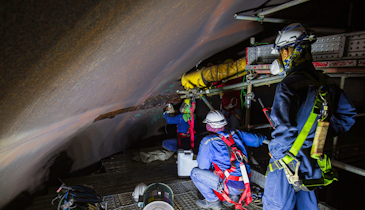Interested in Infrastructure?
Get Infrastructure articles, news and videos right in your inbox! Sign up now.
Infrastructure + Get AlertsCornell University's College of Engineering is tackling a nationwide challenge with a new project in Puerto Rico that aims to help small communities in the territory finance, build and operate drinking water systems.
The project is called Water for Small And Very Small Systems (WaterSAVerS) and is funded by the National Science Foundation. It aims develop a framework for deploying sustainable water systems in often-overlooked small communities.
The project will initially focus on Puerto Rico, which faces economic hardship and heightened vulnerability to natural disasters due to climate change. However, the ultimate goal is to expand WaterSAVerS solutions across the U.S.
The AguaClara advantage
WaterSAVerS leverages the expertise of Cornell's AguaClara program, known for developing open-source sustainable water treatment technologies and gravity-powered water treatment plants. These innovative systems minimize operation and maintenance costs, a major hurdle for these areas.
Capitalizing on infrastructure investment
The Bipartisan Infrastructure Law of 2023 presents a timely opportunity for WaterSAVerS. The project aims to help SaVerS communities access the legislation's significant funding for water infrastructure improvements.
“AguaClara plants already serve more than 100,000 persons in Central America and produce drinking water that consistently meets U.S. Environmental Protection Agency standards for turbidity and fecal indicator bacteria,” says project lead Ruth Richardson. “Migration of this technology into the U.S. could benefit millions of Americans living in SaVerS communities.”
Read the full story from Cornell University for more details on the project's three focus areas and the diverse team tackling this critical challenge.






